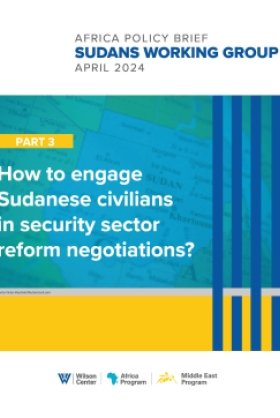Pathways to Peace: Stories of Environment, Health, and Conflict
Practitioners and experts highlight work that demonstrates the positive impact multi-dimensional development and peacebuilding programs can have on environmental conflict arenas.
Overview
"Even in the hardest moments of conflict there are opportunities for cooperation, and they need to be seized," said Juan Dumas, senior advisor of Fundación Futuro Latinamericano during the Pathways to Peace: Stories of Environment, Health, and Conflict roundtable event co-hosted by the Wilson Center's Environmental Change and Security Program and the Fetzer Institute on January 13.
"Even as you were talking about the conflict potential," said Aaron Wolf, professor of Geoscience at Oregon State University, "everywhere you looked there were people talking about water uniting together across boundaries and being able to share… [and] people being willing to talk about water when they wont talk about anything else."
Dumas and Wolf were joined by Gidon Bromberg, co-director of Friends of the Earth Middle East (FoEME); Shewaye Deribe, project coordinator for the Ethio Wetlands and Natural Resources Association (EWNRA); and Joan Regina L. Castro, executive vice president of the PATH Foundation Philippines, Inc.(PFPI) to discuss work that demonstrates the positive impact multi-dimensional development and peacebuilding programs can have on environmental conflict arenas.
Water as an Entry Point
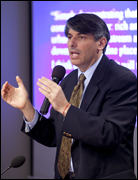 "In the academic world, there's a growing documentation about the coming wars of the 21st century are going to be about water resources," said Wolf, discussing how water resources are inherently intertwined with the Arab-Israeli and other regional conflicts. His research, however, suggests the opposite. In recent history, he said, cooperation for the resource, not conflict, was observed in nearly two-thirds of the world's cross-boundary watersheds.
"In the academic world, there's a growing documentation about the coming wars of the 21st century are going to be about water resources," said Wolf, discussing how water resources are inherently intertwined with the Arab-Israeli and other regional conflicts. His research, however, suggests the opposite. In recent history, he said, cooperation for the resource, not conflict, was observed in nearly two-thirds of the world's cross-boundary watersheds.
"Water is a wonderful way to have regional dialogue," he continued, discussing how technical data and modeling are only part of any successful water conflict resolution. "A language that people have in common, and when we talk about water—because it's connected to everything we do—we end up talking about our shared vision of the future."
"We came out with a vision that is a shared vision," echoed Bromberg in describing the Good Water Neighbors (GWN) project—a FoEME program seeking to improve water scarcity and quality in the Jordan River watershed by fostering cooperation between Israeli, Palestinian, and Jordanian leaders. "The Jordan office advocates that vision to the Jordanian government, the Israeli office to Israeli government, the Palestinian office to the Palestinian authority. That's proven to be very effective because it's the same vision."
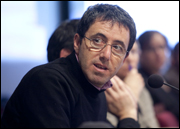 While hesitant to say the program could lead to or be a model for peace in the Middle East, Bromberg did underscore how multi-dimensional methods used in GWN could productively serve future peacebuilding efforts in the region.
While hesitant to say the program could lead to or be a model for peace in the Middle East, Bromberg did underscore how multi-dimensional methods used in GWN could productively serve future peacebuilding efforts in the region.
"By empowering young people to go out and improve their own water reality with their own hands [through rainwater harvesting and grey water collection] they learn together, and then they build the facilities within their own communities," said Bromberg. "…Not only does it empower the youths but it helps create peacemakers."
Integrated PHE and Conflict Avoidance
"Water is common for all of us because it is the base of our life, of our survival," said Deribe, linking ENWRA's integrated population, health, and environment (PHE) wetland restoration program in Ethiopia to the greater discussion. "I think it is a lack of altruism, a lack of mutualistic thinking which leads us to this kind of conflict."
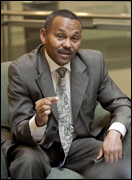 Ethiopia's 12 river basins serve more than 200 million people. Managing local wetlands and waterways with PHE approaches can therefore play an integral role in maintaining environmental quality and productivity for current and future generations while avoiding conditions that contribute to conflict, according to Deribe.
Ethiopia's 12 river basins serve more than 200 million people. Managing local wetlands and waterways with PHE approaches can therefore play an integral role in maintaining environmental quality and productivity for current and future generations while avoiding conditions that contribute to conflict, according to Deribe.
Castro, pointing to her own PHE experience with PFPI, found that multi-sectoral programs promote improved environmental quality and community stability. In the Philippines, her program targeted local youth, fishermen, and policy makers to promote food security through sustainable resource management, improved medical and family planning services, and expanded livelihood training.
Castro found that a PHE program could continue even after funding ran out. "A project can be sustained and can be owned by the local governments and local communities if they are provided the capacity to be able to continue to implement the programs and that they see the value of the programs that they do," she said.
Lessons in Conflict Resolution
Funding, said Dumas, is the biggest limiting operating factor for organizations that facilitate dialogue in environmental conflict areas. The ability to travel across Latin America on short notice to help resolve conflict has been extremely beneficial to Dumas' organization; but in an arena where funders require full proposals with specific outcomes and indicators, such availability over the long-term is "not financially sustainable."
Dumas did, however, suggest ways to reduce the need for conflict resolution while opening accessibility to funding. He recommended that institutions mainstream environmental considerations into all sectors of decision making, thereby improving capacity to respond to environmental conflicts within the given population. He also suggested the creation of "early action funds"—pools of money that his and other organizations can use on short notice for dialogue facilitation support.
Drafted by Julia Griffin.
Documents & Downloads
- Pathways to Peace: Stories of Environment, Health, and ConflictDownload
- Pathways to Peace: Stories of Environment, Health, and ConflictDownload
- Pathways to Peace: Stories of Environment, Health, and ConflictDownload
- Pathways to Peace: Stories of Environment, Health, and ConflictDownload
- Pathways to Peace: Stories of Environment, Health, and ConflictDownload
- Pathways to Peace: Stories of Environment, Health, and ConflictDownload
- Pathways to Peace: Stories of Environment, Health, and ConflictDownload
- Pathways to Peace: Stories of Environment, Health, and ConflictDownload
- Pathways to Peace: Stories of Environment, Health, and ConflictDownload
Speakers
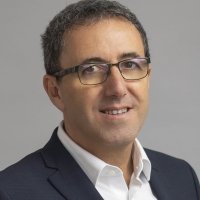
Gidon Bromberg
Joan Regina Castro
Shewaye Deribe
Juan Dumas
Aaron Wolf
Hosted By

Environmental Change and Security Program
The Environmental Change and Security Program (ECSP) explores the connections between environmental change, health, and population dynamics and their links to conflict, human insecurity, and foreign policy. Read more

Urban Sustainability Laboratory
Since 1991, the Urban Sustainability Laboratory has advanced solutions to urban challenges—such as poverty, exclusion, insecurity, and environmental degradation—by promoting evidence-based research to support sustainable, equitable and peaceful cities. Read more
Thank you for your interest in this event. Please send any feedback or questions to our Events staff.
